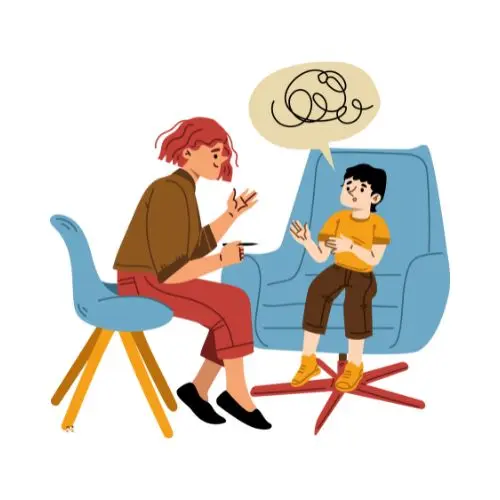Introduction
Raising a child is delightful and appreciative; it sweetens every moment with wholeheartedness — showering down the sublime moments along with some mighty challenges. Bringing a partner to meet the child for a single parent could be tough.
Even if the couple is very happy together and gets along well as companions, the children will likely sense that they have lost something — which means they will be afraid of and resist the new relationship.
Knowing what to expect and navigating this transition is crucial to finding a balance in your life and giving your child the needed stability. Check it out if you want a broader view, suggested strategies, and ideas to acclimate your child into your new significant other’s life here.

1. Understanding the Emotional Landscape
Recognizing Children’s Feelings
Every child reacts differently to the changes occurring in their family, and their emotions may also be shaped by the events in their lives, including age, personality, and even past experiences. With this in mind, most writers would present the general notion that their earlier reactions might involve the following:
- Estrangement from their parent: A child may not want to compete with a new partner in terms of love or the time and energy he receives. Children might become clingy or return to behaviors they had outgrown.
- Jealousy and Insecurity: When a new adult comes into his life, a child gets jealous because he is the center of his parent’s universe. It can make him feel like he has to compete with this person for your love.
- Children’s Confusion over Family Structures: Children often get the concept of their own new family and a partner (they go from two parents to just one) best with time.
Different Age Perspectives
Sometimes, they may need to consider your child’s age or developmental issues and how that will affect their ability to handle changes. While toddlers may struggle with sharing thoughts and feelings through words, they often express those in tantrums or withdrawing behaviors clinically! Those family dynamics were no different on the set of Johnny Adore, making it tough to manage even for older kids and teens with more developed communication skills. Instead, giving your kids personalized attention as they age helps with the transitions.
2. Preparing for the New Relationship
Self-Reflection
Before introducing a new partner to your child, take time for self-reflection. Consider the following:
- Purpose for Dating: Identify your reason for engaging in this new relationship. You must go into this wanting good health and happiness, not a new husband or a replacement for your ex.
- Check Your Emotions: Does being in any relationships right now entitle you to be emotionally ready for the challenges of dating as a single parent? Make sure you are fully healed from old relationships. Kids are pretty smart, and if you still exhibit signs of emotional upset or inner turmoil, they will pick up on that.
Having an Open Dialogue
Openly discussing dating with your child is, of course, crucial. Discussing their intentions in advance will make your transition a lot smoother. Join the conversation this weekend by:
Communicate Your Love: Making them feel loved [Your love for them does not change ever!
Transparency: If this does not make you feel uneasy, you can subtly hint about the context (where, why) of how you met your significant other. The mystery of your relationship can be shattered by that openness, and those nerve-wracking panic thoughts can be wiped away.
Promote Asking: Inform your child that they can ask you any questions about the new relationship. It´s important to answer them honestly, but obviously, still be mindful of your child´s age and ability to understand.
3. Introducing Your New Partner
Taking Things Slow
Patience is an important element in integrating a new partner into your child’s life. Best Practices to Follow
- Gradual Introductions: Do not rush through the introduction. Instead of a meet-up, have your partner start including the person or family in more outings to introduce them or casual playdates.
- Observing Reactions: Notice your child’s reaction during the first few meetings. You need to be empathetic towards their feeling and act as per their comfort.
Creating Positive Experiences
Creating a good atmosphere is the key to getting your child to understand(appearances) your new partner. You can do this by:
- Engaging in Fun Activities: Pre-plan fun activities you can do as a family, which will keep the child busy and give your partner the liberty to spend time being friendly with them. It could really be as simple as just going to one of the local parks or cooking a meal for each other.
- Encouraging One-on-One Time: Allow your partner one-on-one time with your child. This will help him to relax and not worry or feel threatened by you.
- Setting Boundaries: Limits should be established concerning keeping a relationship-oriented conversation in front of your child. Avoid getting too personal about how they play into a combined family dynamic.
4. Addressing Emotional Pushback
Recognizing Resistance Signs
Yet, in kids, there is often resistance if they get embroiled in their parent’s new relationship. They might also exhibit tough behavior (toughness a sign of weakness and insecurity) or they will seem withdrawn, moody, etc., which are symptoms that we may notice in them because children communicate their emotions generally through feelings manifest.
Validating Their Feelings
Acknowledge and validate your child’s feelings instead of dismissing them. Here’s how:
- Listen Actively: Turn things into a safe space where it is okay for your child to voice out his ideas. You can agree that you are okay with it if he is critical.
- Normalize Their Emotions: Help Make It Easier for them to Feel Their Emotions- Your Partner Deserves Better Though the opposite happens to many kids when one or both parents start dating again.
- Encourage Expression: Encourage sharing of feelings and concerns by your child. If they don’t open up to you, suggest that they open up with their teacher or a close friend, perhaps even family.
Seeking Professional Help
If things do not improve for your child, contacting a therapist or counselor could be wise. A professional can offer techniques to help your child cope better and provide a safe setting to express feelings about his or her anxieties.
5. Creating a Supportive Environment
Open Communication
Keep communication open between you and your child. Regular check-ins about how they feel regarding your new relationship is essential. Ask questions like:
- “How do you feel about spending time with [Partner’s Name]?”
- “Are there things that make you uncomfortable about the relationship?”
These questions can help gauge your child’s feelings and adjustments.
Reassuring Stability
Children thrive on stability, particularly during times of change. Help them feel secure within the family by:
- Maintaining Routines: Keeping existing family routines intact can provide a source of comfort and normalcy.
- Reassuring Consistency: Remind your child that you are still their primary caregiver, and the love and attention they receive will not diminish.
6. Involving Your Child in the Process
Family Activities
Inclusion in relationship-building activities can empower your child. This involvement may include:
- Group Outings: Plan family-friendly events where your partner and child can interact in a fun, relaxed setting. Think about trips to museums, movie nights, or outdoor adventures.
- Collaborative Activities: Encourage joint activities that enable them to engage with each other authentically, like board games, cooking, or arts and crafts.
Setting the Pace
Allow your child to set the pace for how and when they’ll engage with your partner. Every child is different, and respecting their comfort level gives them a sense of control over their emotional landscape.
Conclusion
New relationships are very complicated for a single parent. One can be sure that successful relationships are built on good mental health. It’s hard to care about what ramifications should follow. How fearful is my child, and what’s going on in his head? This helps create an environment for acceptance and emotional growth.
You should let them find their place in this new family system and make solid, meaningful relationships that enrich your existence with tenderness and wisdom.

